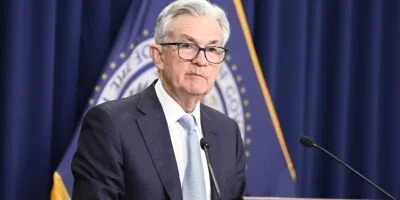Op-ed: Time to restore sanity to the world’s monetary system
Earlier this week, Dr. Judy Shelton published a piece in The Hill that shed light on one of the world’s most pressing, yet least discussed, issues: our global monetary system. Using China’s decision to devalue its currency as a starting point, Dr. Shelton explores how central bank discretion around the globe creates an economic reality where nations cannot “compete fairly on a level playing field.” Congress seems to understand this and has repeatedly called China to “play by the rules.”
The problem, however, is that there are no longer any rules; they died with Bretton Woods.
Before, free trade was based on “genuine value rather than monetary illusion” and people could count on monetary predictability when making investments. Today, however, central bankers can use discretion to “directly intervene in foreign exchange markets to influence the value of their own nation’s currency relative to other currencies.” Ultimately, such manipulations cause monetary turmoil and offer unfair advantages to certain economic actors. That certainly should not be the role of a central bank.
Central bank tactics should pick favorites, but rather offer a vehicle for growth throughout the economy. A rule based system is beneficial across the board and as Dr. Shelton notes:
Labor productivity for the United States soared during the Bretton Woods era, with growth averaging 2.8 percent annually from 1948 to 1973. Middle-class income growth mirrored the gains in productivity, with the median household’s income likewise rising at 2.8 percent annually; at this rate, incomes double every 25 years, or about once every generation. Moreover, the gains in overall household income were broadly shared. Income inequality decreased as the share of income going to the top 1 percent fell by nearly one-third, while the bottom 90 percent gained a higher share of total income. In short, having an orderly and ethical international monetary system was a tremendous boon to economic prosperity for the middle class.
This is certainly not the story that Janet Yellen wants you to hear and it comes of no surprise that the Federal Reserve never mirrored a report published the the Bank of England that showed how QE lined the pockets of Britain’s richest 5 percent. Money should be an honest medium of exchange, free of favoritism and false incentives. It is meant to “provide a useful measuring tool for free enterprise- not to serve as an instrument of government policy.”
Luckily, Dr. Shelton will have an opportunity to take her message to the Federal Reserve later this month in Jackson Hole, Wyoming, where she will be speaking at APP’s Jackson Hole Summit, an event running parallel to the Federal Reserve’s yearly meeting (officially the Federal Reserve Bank of Kansas City’s “Economic Symposium”).
In the past, former Fed chairmen Ben Bernanke and Alan Greenspan used Jackson Hole to signal major shifts in Fed policy; it is our sincere hope that the efforts of Dr. Shelton and others might bring about an announcement by Chairwoman Janet Yellen of the Fed’s return to a system based on rules and monetary discipline.
To read Dr. Shelton’s article in its entirety, click here.








